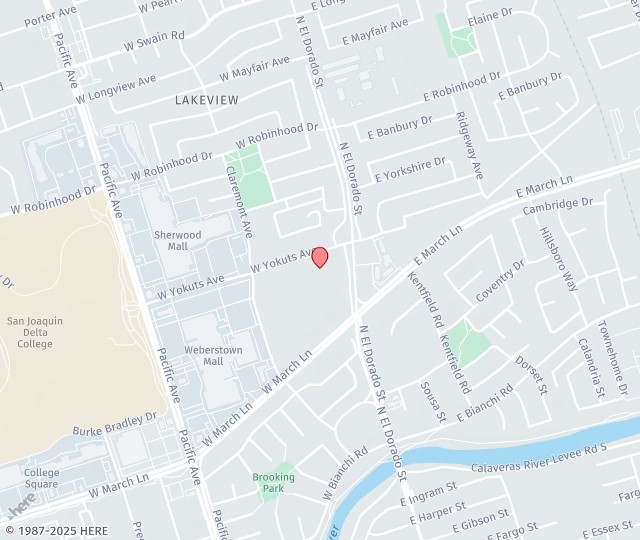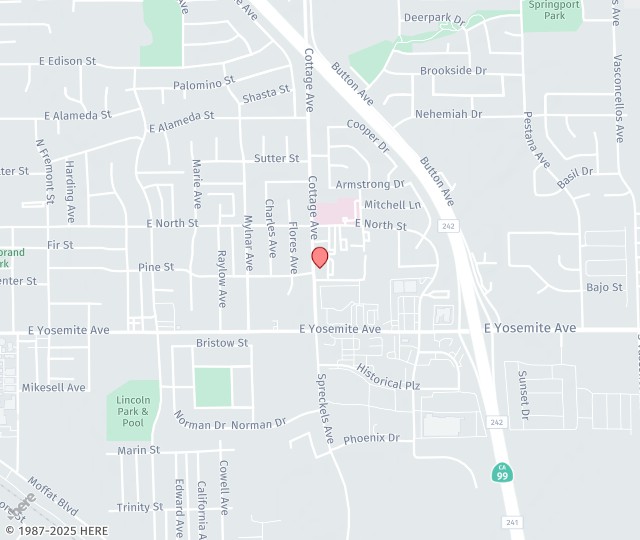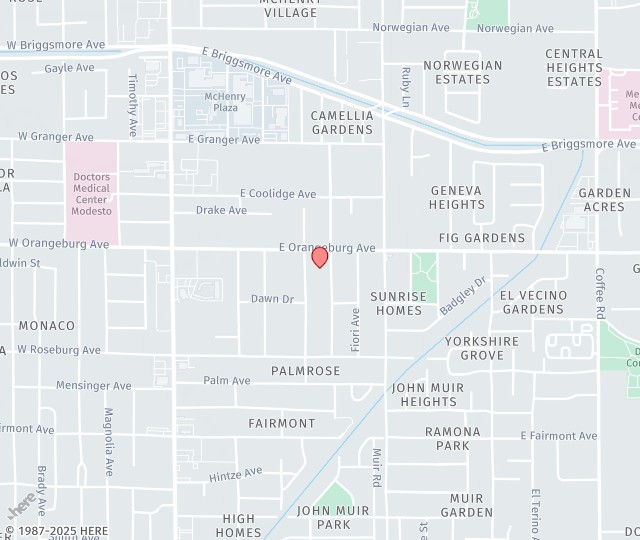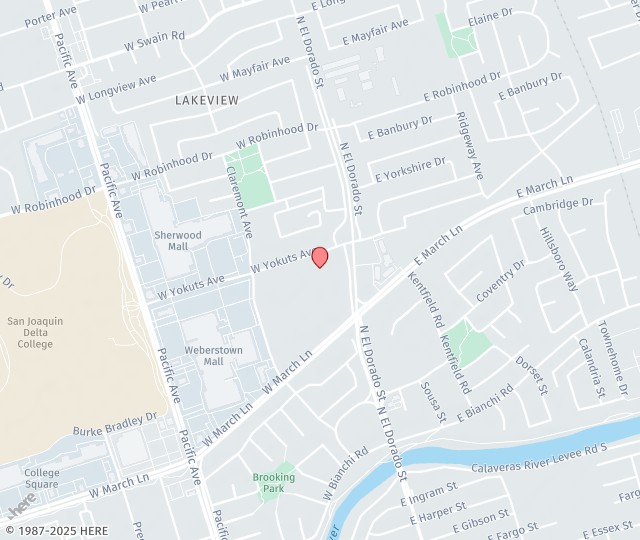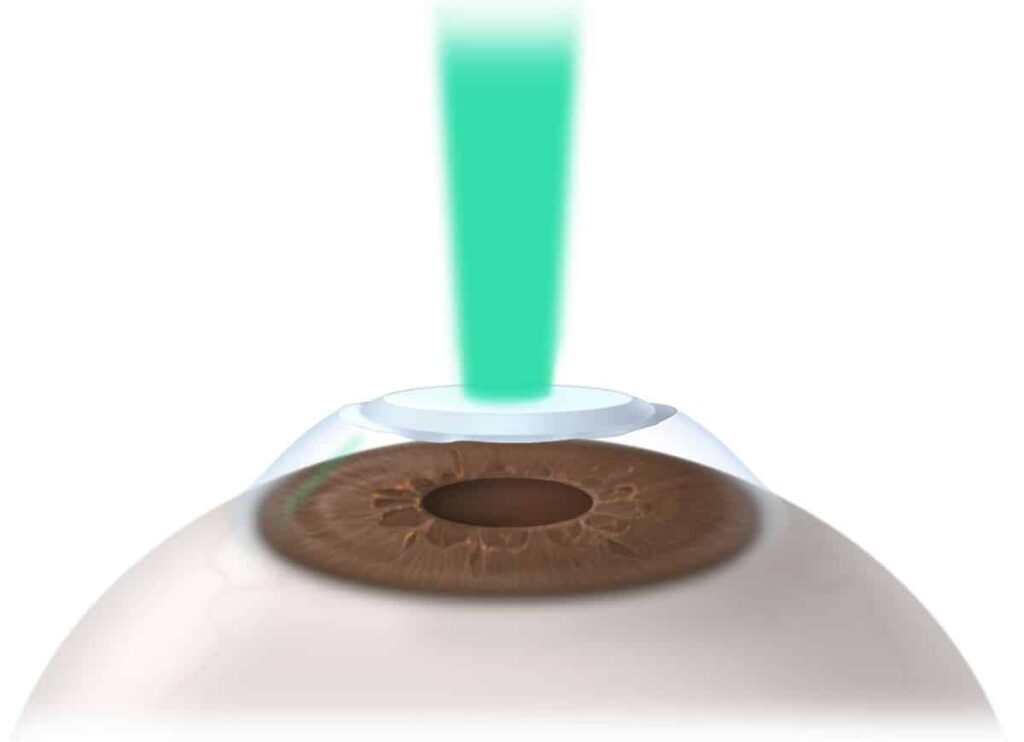
SCHEDULE AN APPOINTMENT
If you would like to learn more about Photorefractive Keratectomy (PRK) call +1 (209) 239-5303 to make an appointment at Central Valley Eye Medical Group.
What is Photorefractive Keratectomy (PRK)?
Photorefractive keratectomy, or PRK, is a type of laser eye surgery that reshapes the cornea. Photorefractive keratectomy was the first procedure to use the Excimer laser and, after lasik, is the second most common type of refractive surgery. Lasik makes a flap and applies the laser to the inner tissue of the cornea. However, with PRK, the epithelium, or outer skin of the cornea, is removed and a laser is applied to the surface of the cornea.
What Vision Problems Does PRK Treat?
PRK can correct low to high levels of nearsightedness, farsightedness, and astigmatism. To treat nearsightedness, the steep cornea is made flatter by removing tissue from the center of the cornea. This moves the point of focus from in front of the retina to directly on the retina. To treat farsightedness, the flat cornea is made steeper by removing tissue outside of the central optical zone of the cornea. This moves the point of focus from behind the retina to directly on the retina. To treat astigmatism, the cornea is made more spherical. This eliminates multiple focus points within the eye and creates one point of focus on the retina. Additionally, PRK can treat astigmatism at the same time as nearsightedness and farsightedness.
Candidates for PRK Surgery
Patients who experience any combination of the following may be candidates for PRK surgery.
- Corneas are too thin for Lasik
- Had a stable eye prescription for at least one year
- Have no health issues affecting their eyes
- Large pupils
- Over 18 years of age
- Want to reduce or eliminate their dependence on glasses or contacts
Photorefractive Keratectomy Procedure
Patients should expect to arrive an hour prior to their procedure. Patients can choose to take a sedative to help them relax. Then, the area around your eyes will be sterilized and a drape may be applied around your eye. Anesthetic eye drops will be used to numb your eyes. Once your eye is completely numb, a member of our staff will place an eyelid holder between your eyelids. This will keep you from blinking during the procedure.
Next, one of our highly skilled doctors at Central Valley Eye Medical Group will remove the epithelium, a thin layer of protective skin that covers the cornea. While the laser reshapes the cornea patients will need to look directly at a target light. Depending on the amount of correction, the laser treatment will be complete in less than two minutes.
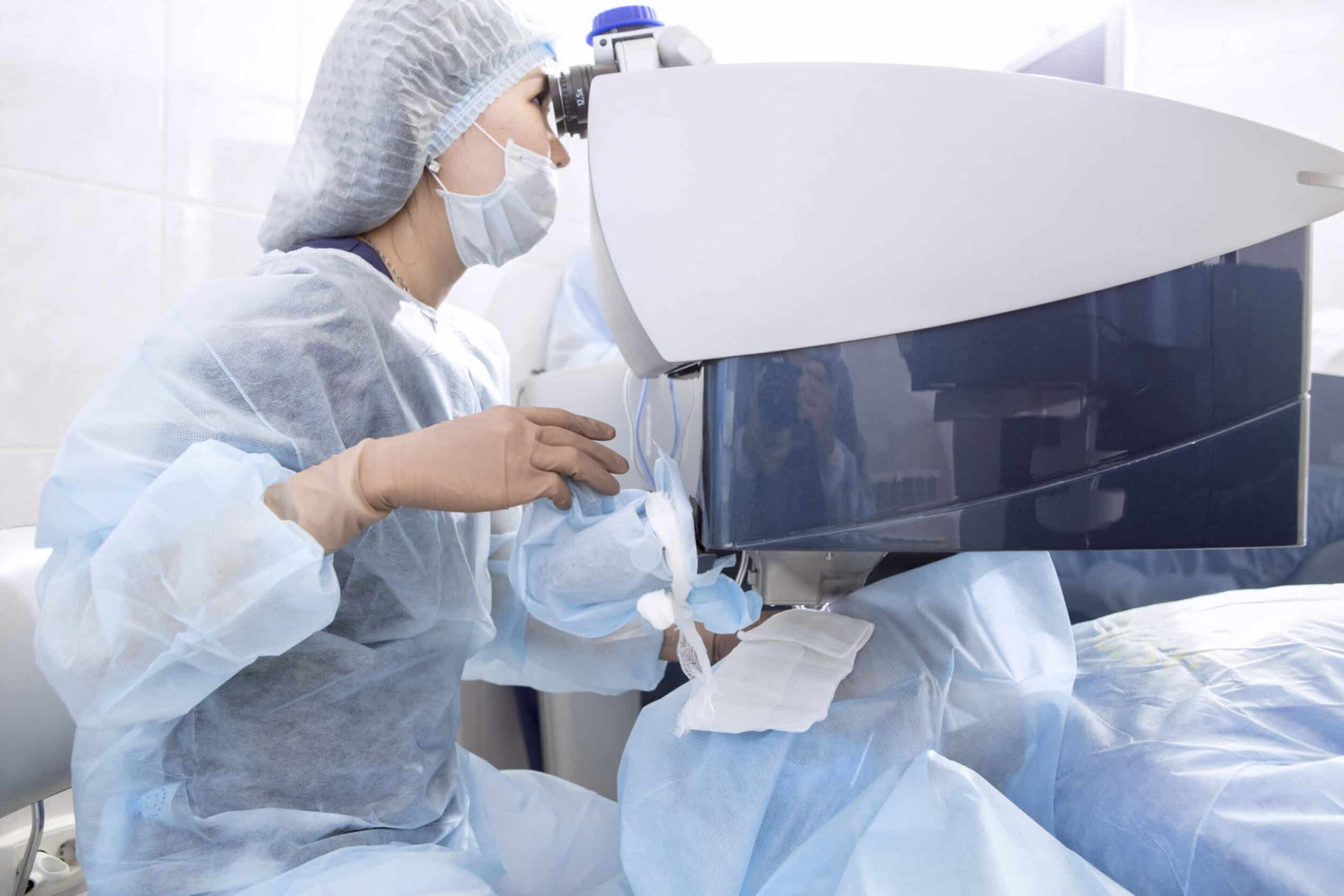
PRK Recovery
Following your procedure, a member of our staff will examine your eye(s) with a slit lamp microscope. Your vision may be blurry or hazy for up to five days. Patients will likely experience some discomfort as the epithelium heals and covers the treated area. To minimize discomfort, patients can use eye drops, pain medication and possibly a protective contact lens. While vision can fluctuate for up to six months, most patients resume normal activities within 3 days.
PRK Laser Eye Surgery Results
The decision to have PRK is an important one that only you can make. The goal of any refractive surgical procedure is to reduce your dependence on corrective lenses. However, we cannot guarantee you will have the results you desire. The vast majority of our patients are extremely happy with their vision after PRK and can do most activities without dependence on corrective lenses.
Since everyone heals somewhat differently, some patients may overreact to the procedure and some may underreact resulting in over corrections and under corrections. Once the eye has stabilized, after about 3 to 6 months, our staff can discuss whether re-treatment is necessary.
“This is the best place to go to have your vision corrected….very friendly….Dr. Tittler is the best!” – Patient of CVEMG
PRK Side Effects
PRK is a safe, effective and permanent procedure, but like any surgical procedure, it does have some risks. After PRK, almost everyone experiences some visual side effects. These visual side effects are usually mild and temporary and have a tendency to diminish over time. However, there is a slight chance that some of these side effects won’t go away completely, including light sensitivity, glare, and halos. Serious complications to PRK are extremely rare.
Schedule A Stockton PRK Consultation
If you are interested in PRK for laser vision correction, contact Central Valley Eye Medical Group. Call us at +1 (800) 244-9907 to schedule a consultation with one of our ophthalmologists. We serve Stockton, Manteca, and surrounding areas in California.







